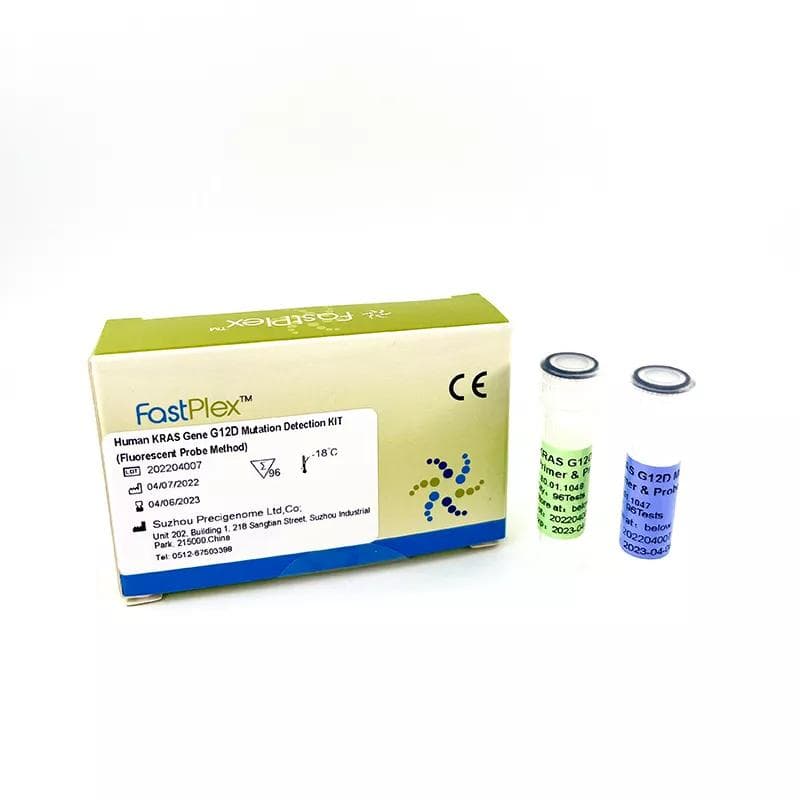Human KRAS Gene Mutation Detection Assays

Human KRAS Gene Mutation Detection Assays
The assays (primers and probes only) are designed to detect the KRAS (V-Ki-ras2 Kirsten rat sarcoma viral oncogene homolog) mutations in tissue DNA and cfDNA from plasma.
The K-ras gene (K-ras, p21) family consists of three genes associated with human tumors: H-ras, K-ras, and N-ras, located on chromosomes 11, 12, and 1, respectively. The K-ras gene, also known as the p21 gene, encodes a 21kD Ras protein. Among the Ras genes, K-Ras has the greatest impact on human cancers and functions as a molecular switch. In its normal state, it controls the pathway regulating cell growth. However, when it is mutated, it causes continuous cell growth and inhibits self-destruction. K-ras also plays a role in intracellular signal transmission. Mutations in the K-ras gene result in its permanent activation, preventing the production of normal Ras protein, which leads to disrupted intracellular signaling, uncontrolled cell proliferation, and the development of cancer.
Approximately 30% of human malignant tumors are associated with Ras gene mutations, and mutated Ras proteins are often in an active state. K-ras mutations are commonly found in leukemia, lung cancer, rectal cancer, and pancreatic cancer, with mutations occurring in 30%-35% of rectal cancers. Around 96% of KRAS gene mutations occur at codons 12 and 13 of exon 2, and KRAS G12D mutations account for approximately 17-18%.
Cat. No. | Product Name | Specification |
3.02.01.4028 | Human KRAS Gene G12D Mutation Detection Assay | 24 reactions |
3.02.01.4029 | Human KRAS Gene G12V Mutation Detection Assay | 24 reactions |
3.02.01.4030 | Human KRAS Gene G12C Mutation Detection Assay | 24 reactions |
3.02.01.4031 | Human KRAS Gene G12A Mutation Detection Assay | 24 reactions |
3.02.01.4032 | Human KRAS Gene G12S Mutation Detection Assay | 24 reactions |
3.02.01.4033 | Human KRAS Gene G13D Mutation Detection Assay | 24 reactions |
